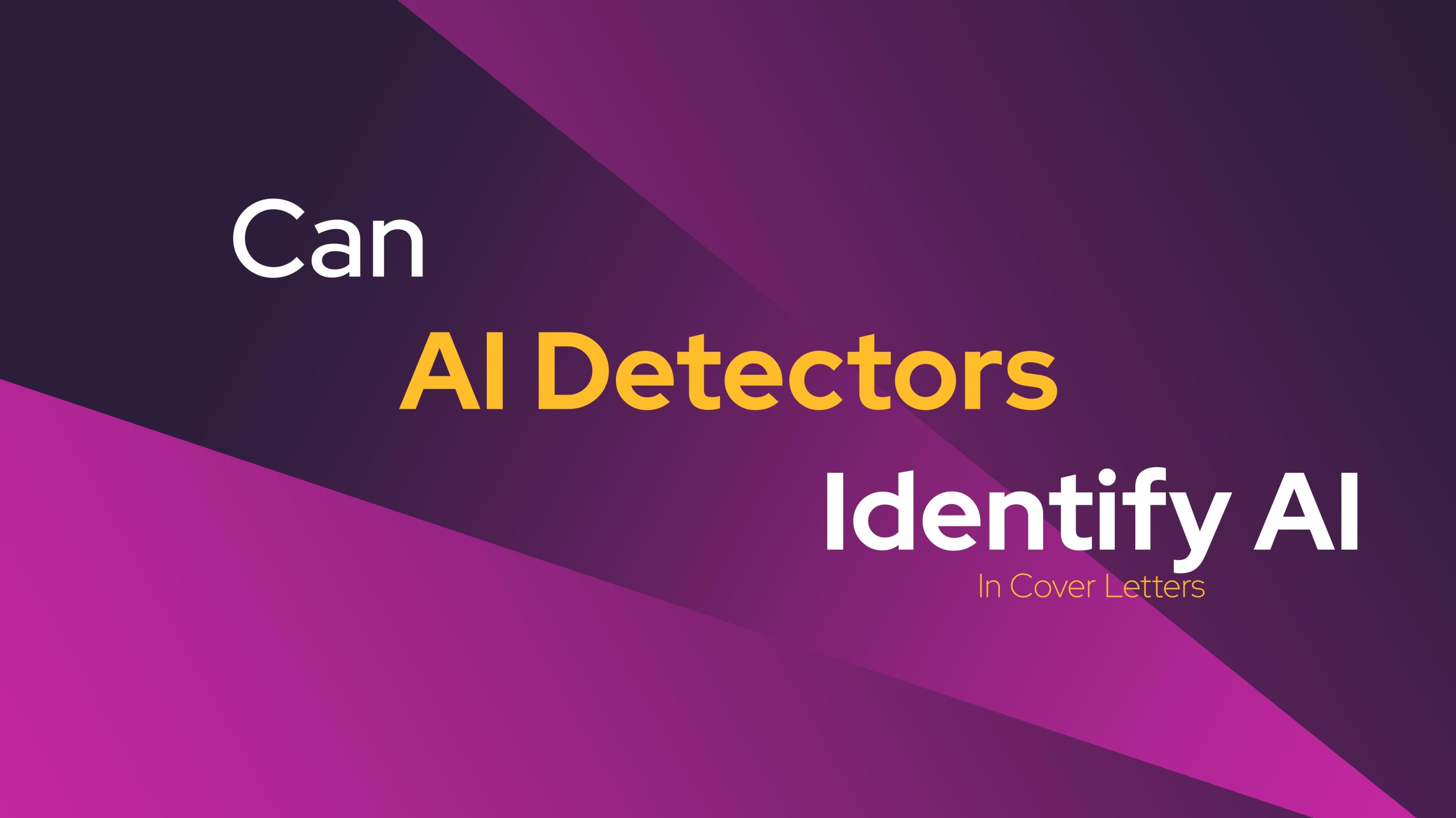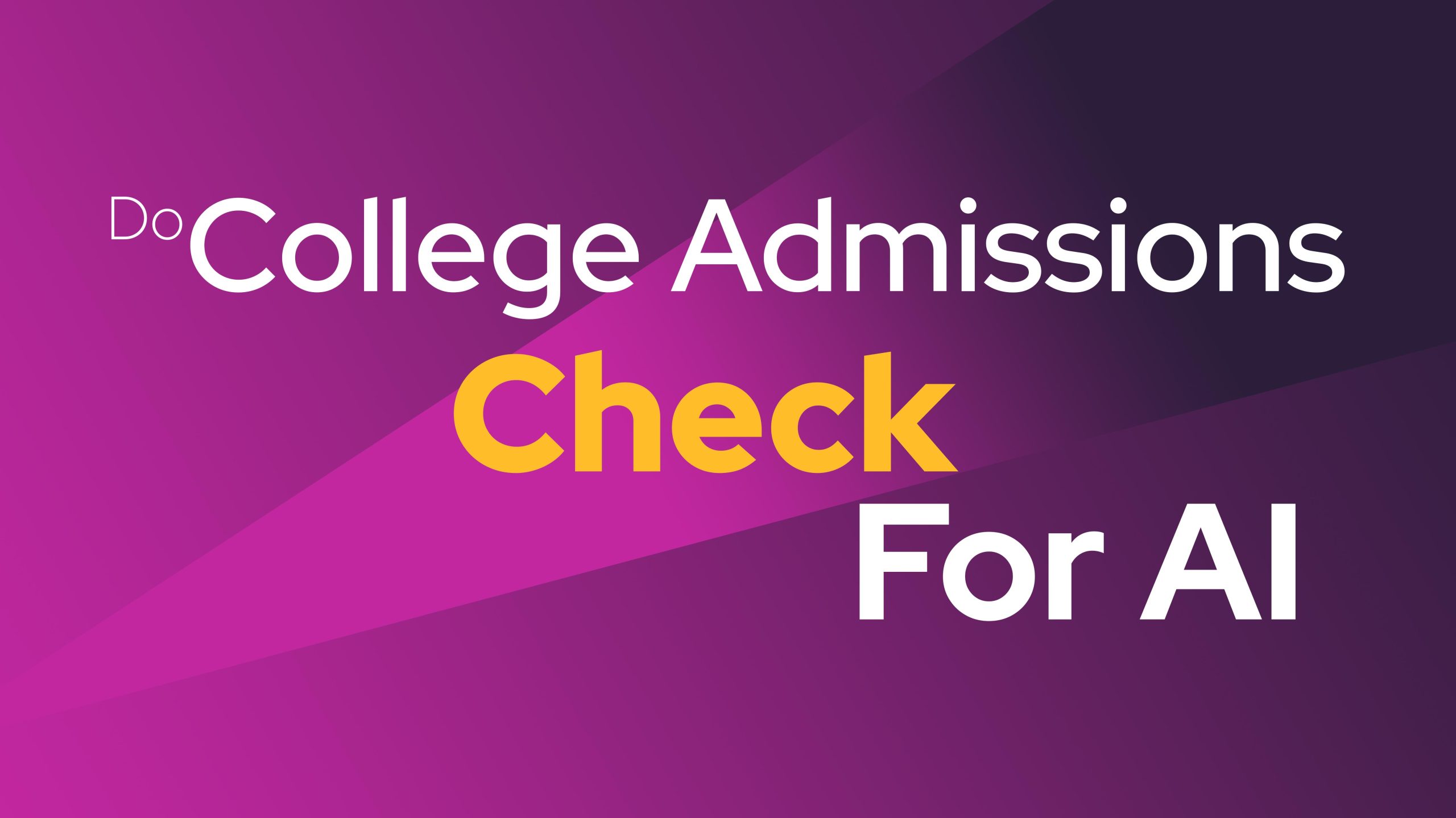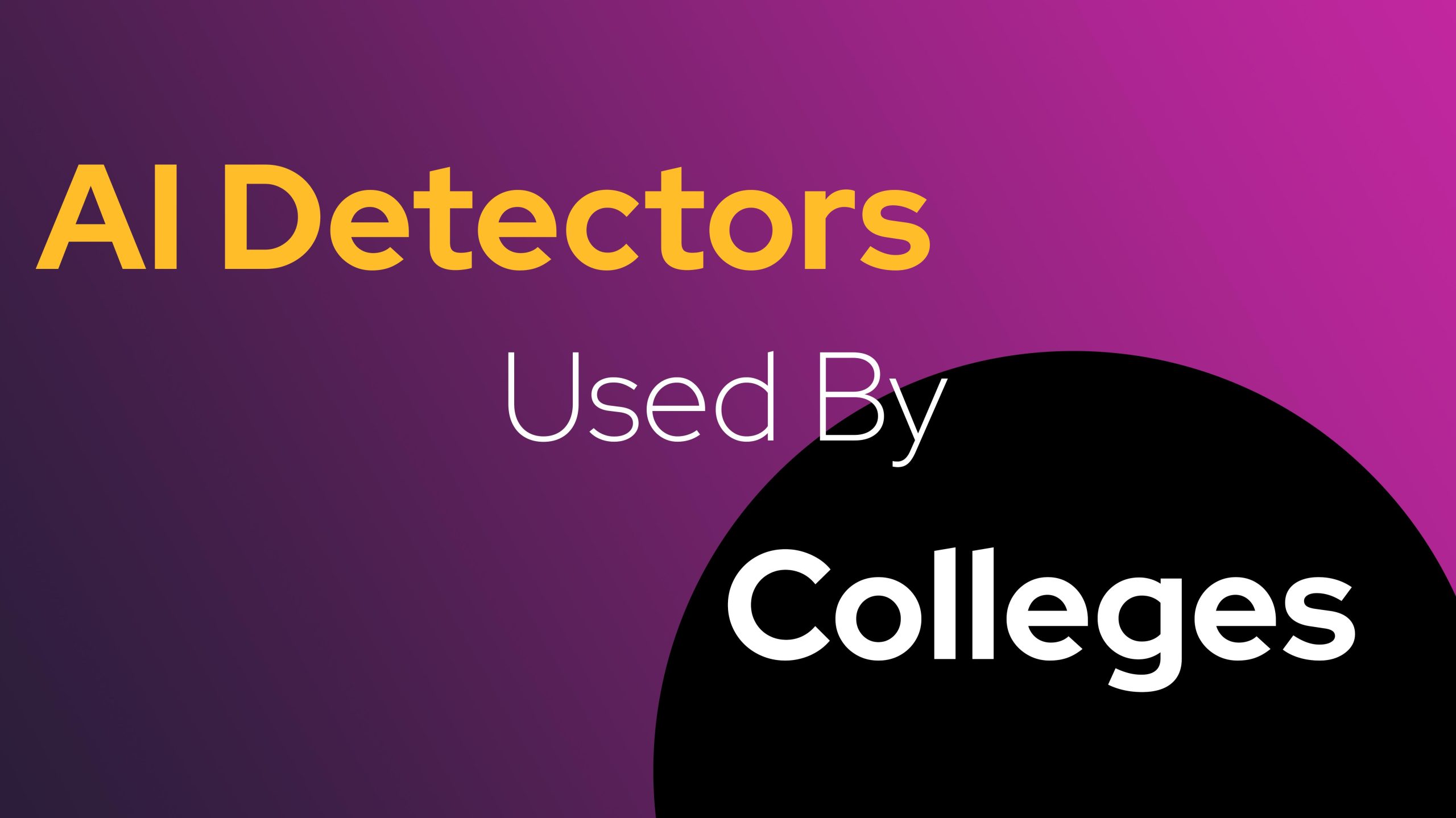Wondering if your resume and cover letter written by AI can be caught?
Let’s dive into the good and bad points, along with how these AI-made job applications are spotted in the current job market.

Looking for a job and sending out resumes and cover letters takes a lot of time.
Now, with AI becoming more common, people are curious if AI can help make resumes and cover letters.
They also wonder if tools that spot AI-written stuff can catch these documents.
Let’s talk about using AI for making resumes and cover letters and if AI-spotting tools can notice them.
Using AI in Job Applications and Cover Letters
When you’re looking for a new job, you might hear that using AI can give you an edge.
AI can help you create a great cover letter that shows off your skills and fits what the employer wants.
But, whether you can use AI for your resume and cover letter depends on where you’re applying.
Some places say no to AI in job applications. If you’re not sure, it’s a good idea to check the company’s rules first.
Can AI Detectors Identify AI in Cover Letters?
We wanted to see if machines designed to spot AI-written stuff could catch a cover letter made by AI. So, we tried it out.
First, we picked a job advertisement on LinkedIn and told the WebPilot feature in ChatGPT to whip up a cover letter using the job post details.
Secondly, we used a tool called Netus.ai, made for finding AI-generated content, and checked if it could spot that our cover letter was written by AI.
Here’s what we asked it to do:
“I’m interested in applying for this role: [Link to role].
Please can you craft a cover letter for me that shows off my enthusiasm for the role, as well as my personal skillset and selling points,
which includes: lives locally, relevant experience, can start quickly.”
We received this in reply:
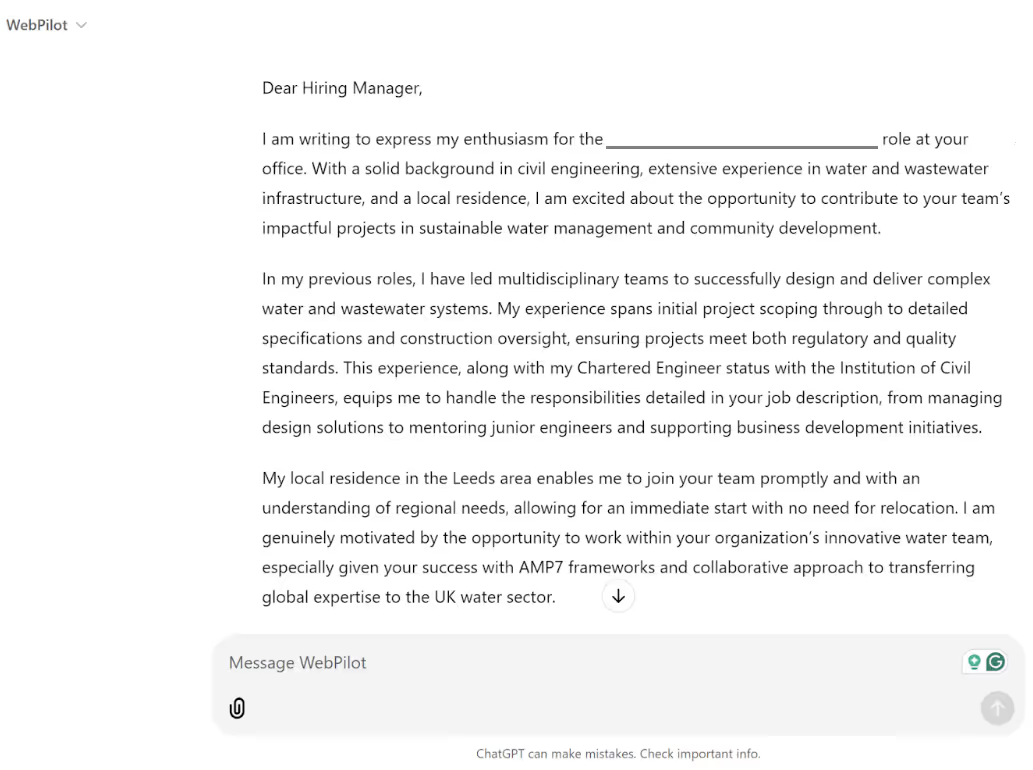
With a few clicks, we get a cover letter. It’s a bit too broad, though.
The tool Netus.ai figured out that the AI wrote the cover letter, and it’s pretty sure about it.
Is It Smart to Use AI for Resumes and Cover Letters?
Think about this: can using AI make applying for jobs quicker? It’s something to ponder.
Really, it all comes down to the job you want and what the company thinks about using AI for applications.
Some places might be okay with AI helping check your grammar or spelling. Yet, other places won’t allow it at all.
How can you use AI when applying for jobs, if it’s allowed?
If the rules let you use AI, think of it as a helper, not something that does all the work for you.
This means you can use AI to check your work and give you advice, help you think of things to put in your resume, and find out more about the company you’re interested in.
Let’s try this way, using AI as a helper like we talked about before.
Let’s explore our topic:
“Can you provide me with some key information about this company that will help me with my application?”
This is what we received in reply:
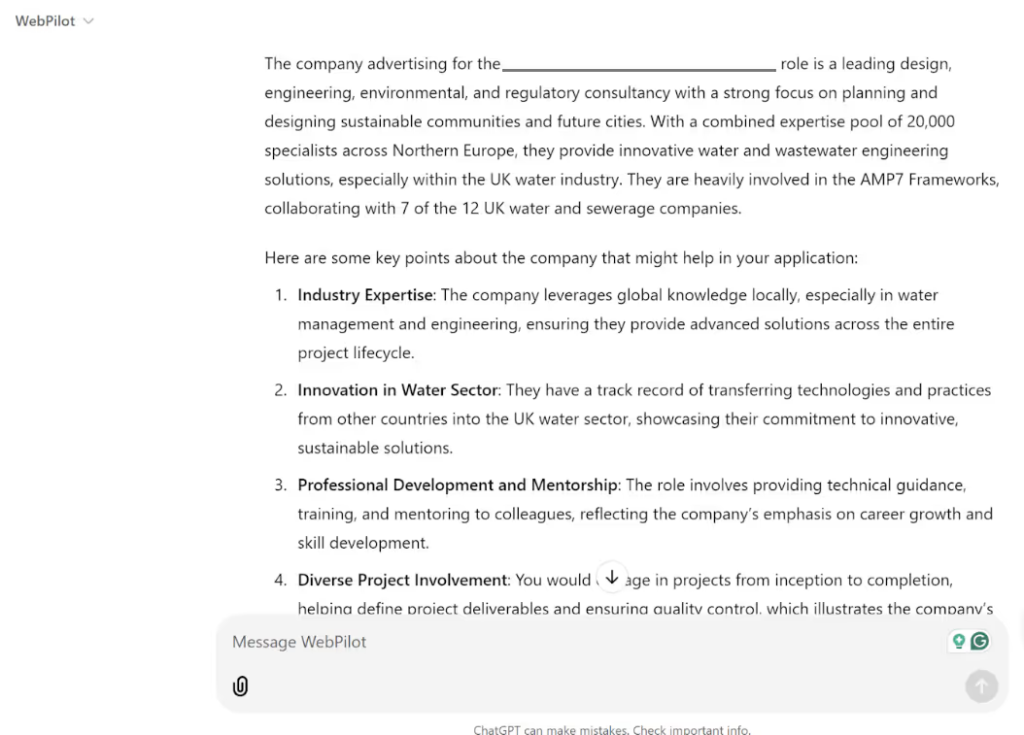
Now, we have a lot more information for writing our cover letter.
It’s a good first step to learn about a company. But, it’s still important to do more research, like looking at the company’s website.
You could also tell ChatGPT about your main work experiences. This way, it can show you how to include your skills in your application.
After you do your research and write your application, check it with Netus.ai.
This tool helps you see if there’s any content that looks like it was made by AI, before you send it in.
The Human Touch – Why Personalization Still Matters in Coverage Letters
Nowadays, more people are using AI tools to make resumes and cover letters. But it’s still important to make them your own. This helps you stand out when you’re looking for a job. Employers like it when job-seekers show real interest in their business. This isn’t something that AI can really do.
Why Personalization Is Essential
When you apply for a job, it’s good to show that you know what the company is all about. The people who choose who gets the job like to see that you’ve learned about their company. You should make your application match what they’re looking for. Applications that are too general often don’t work well. This is because they don’t have details that show why you’re the best one for the job.
How Personalization Makes a Difference In How Can AI Detectors Identify AI in Cover Letters
About the Company: Doing your homework about the company makes a difference. Look up their mission and recent wins, then mention these in your cover letter.
Job Matching Skills: Think about the job description. Make sure your resume highlights the skills and experiences that fit the role best.
Your Story: A cover letter isn’t just a list. Make yours a personal story that ties your journey to the company’s goals.
Making Connections: Think back to a good chat with someone at the company, or a company event you attended. Mention this in your application – it helps you stand out from the crowd.
Personalization Tips for College Letters Undetectability
Dig into Details: Look deeply into the company’s site, read their fresh-off-the-press releases, and check out what their employees are saying on LinkedIn.
Carefully Choose Keywords: Mix in keywords from the job description but ensure they fit effortlessly into your story.
Greet the Job Selector: If you can, find out who’s going over the job applications and greet them personally.
Be Genuine: You can lean on AI tools to perfect your language and layout, but make sure your own personality shines through.
Adding these tactics to your job applications can make you stand out from the crowd who only use AI-made templates. Adding your personal touch to an otherwise usual application turns it into a memorable and persuasive introduction that leaves a mark on employers.
Customizing Your Job Search Strategy with AI Tools
Looking for work can feel pretty big and scary. But, guess what? Cool tools powered by AI can make things easier! They make your job hunt less work and still effective. They even make it personal, just for you. When you mix AI into your job hunting plan, things become smoother. It makes applying less of a task and more about making sure it fits just right with the job and people it’s meant for.
Revamp Your Job Hunt with AI’s Help
When you’re hunting for a new job, AI tools can give you a hand. They can help with everything from making a resume to getting you ready for interviews. Here’s how to use them well:
- First, improving your resume with AI: there are apps like Jobscan and Resume.io, powered by AI, that can help make your resume better. These apps compare your resume with the job you’re applying for and make sure you’re using the right words and phrases.
- Next, finding the right job with AI: websites like LinkedIn and Indeed use smart computer programs to find jobs that fit your skills and work history.
- Then, keeping track of your applications with AI: tools like Huntr and Trello help organise your job hunt. They keep track of applications, deadlines and when you have interviews.
- And last, building your skills with AI: online platforms like Coursera and Udemy can suggest courses that fit with your job ambitions. These courses help you gain the skills you need for your future career.
Strategies for Customizing Applications with AI
- Let’s find out about your future places of work. You can use clever tools like ChatGPT to know more about them. This includes their recent work and where they stand in the market.
- Now, let’s write down everything nicely. Grammarly and Jasper are handy tools that can help you draft a good cover letter. And yes, you’ll still have space to add your personal touch.
- Next, let’s make your emails stand out. With AI tools, you can make your emails interesting. They help you pick engaging subject lines and professional templates for your message.
- Last but not least, let’s follow-up, but let’s make it easy. Yesware and Mailchimp are tools that you can use to send follow-up emails. The cool thing is, you can still adjust the tone and content as you wish.
FAQ: Can AI Detectors Identify AI in Cover Letters
Is it risky to use AI for job applications?
Yes, some companies look for AI-made content, which might hurt your chances.
Also, using AI to write your documents could make them seem less unique and not reflect your personal job history, skills, or experiences.
Can employers tell if a resume or cover letter comes from AI?
Yes. Nowadays, a lot of recruiters and job websites can spot if content was made by AI.

